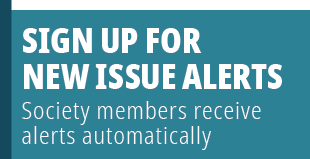Consumer Behavior And Marketing Strategy 9th Edition Pdf Free Download
Of all published articles, the following were the most read within the past 12 months.
-
Free
Collaborative Art: A Transformational Force within Communities
- Melissa G. Bublitz ,
- Tracy Rank-Christman ,
- Luca Cian ,
- Xavier Cortada ,
- Adriana Madzharov ,
- Vanessa M. Patrick ,
- Laura A. Peracchio ,
- Maura L. Scott ,
- Aparna Sundar ,
- Ngoc (Rita) To , and
- Claudia Townsend
Of all published articles, the following were the most cited within the past 12 months as recorded by Crossref.


ISSUES SOLICITING MANUSCRIPTS
The Pandemic Transformed Economy
Volume 8, Issue 2
Submission deadline: November 1, 2021 – January 1, 2022
Editors: Xiaoyan Deng, Xiaojing Yang, Barbara E. Kahn, Selin Malkoc, Yuwei Jiang


Climate Change: Consumer Understanding, Response, and Interventions
Volume 8, Issue 3
Submission Deadline: February 1 - April 1, 2022
Editors: Karen Page Winterich, Rebecca Walker Reczek, Bryan Bollinger


Financial Decision Making
Volume 8, Issue 4
Submission Deadline: May 1 - July 1, 2022
Editors: Abigail Sussman, Hal Hershfield, Oded Netzer


Narratives: Understanding How Consumers Use and Respond to Stories
Volume 9, Issue 1
Submission deadline: October 1, 2022
Editors: Jennifer Edson Escalas, Anne Hamby


Children and Adolescent Consumer Behavior: Foundations and New Research Directions
Volume 9, Issue 2
Submission deadline: January 1, 2023
Editors: Deborah Roedder John, Connie Pechmann, Lan Nguyen Chaplin


Automation in Marketing and Consumption
Volume 9, Issue 3
Submission deadline: February 1 - April 1, 2023
Editors: Stefano Puntoni, Klaus Wertenbroch


Consumer Movements and Activism
Volume 9, Issue 4
Submission deadline: May 1 - July 1, 2023
Editors: Jay Handelman, Henri Weijo


Morality and Consumption
Volume 10, Issue 1
Submission deadline: August 1 - October 1, 2023
Editors: Manoj Thomas, Sankar Sen, Shreyans Goenka


ISSUES IN PRESS
Flash COVID-19 Research Issue: Insights on COVID-19 Outbreak and Related Topics
Volume 6, Issue 1
Editors: Kelly Goldsmith, Angela Y. Lee
Healthcare and Medical Decision Making
Volume 7, Issue 2
Editors: Dipankar Chakravarti, Jian Ni, Meng Zhu
Political Ideology and Consumption
Volume 7, Issue 3
Editors: Rashmi Adaval, Robert S. Wyer Jr.
Interventions for Healthier Eating
Volume 7, Issue 4
Editors: Pierre Chandon, Kelly Haws, Peggy Liu
Racism and Discrimination in the Marketplace
Volume 8, Issue 1
Editors: Jerome D. Williams (1947-2021), Samantha N. N. Cross, Stephanie Dellande
Tweets by aconsres
Frequency: 4 issues/year
ISSN: 2378-1815
E-ISSN: 2378-1823
2020 Scopus CiteScore*: 5.6
Ranked #64 out of 661 in Economics and Econometrics; #32 out of 227 in Applied Psychology; #35 out of 185 in Business, Management and Accounting: Marketing
The Journal of the Association for Consumer Research (JACR) publishes quarterly thematic issues exploring unique topics in consumer behavior. The mission of JACR is to broaden the intellectual scope and interdisciplinary influence of the Association for Consumer Research.
Each issue of JACR has a well-defined theme, chosen from the broad substantive, managerial, and methodological topics relevant to understanding consumer behavior; and each issue is directed by a different team of editors who, with their relevant experience and expertise, are best poised to assemble outstanding articles around that theme...(read more)
View content coverage periods and institutional full-run subscription rates for the Journal of the Association for Consumer Research.
*Scopus CiteScore (Elseview B.V.). Retrieved June 2021, from scopus.com/sources
Download the E-book
e-Book access is included with your individual subscription. Download this issue now:
Nonsubscribers: Purchase the e-book of this issue


Source: https://www.journals.uchicago.edu/toc/jacr/current
Posted by: brantbrantfongere0301949.blogspot.com
